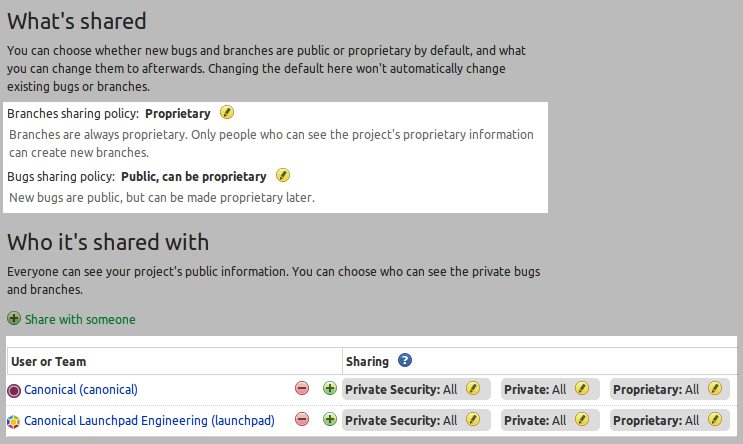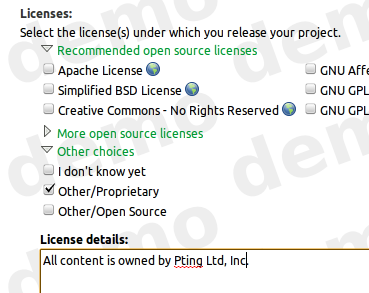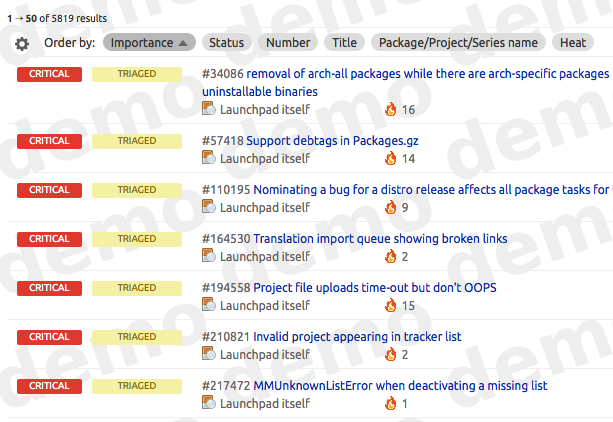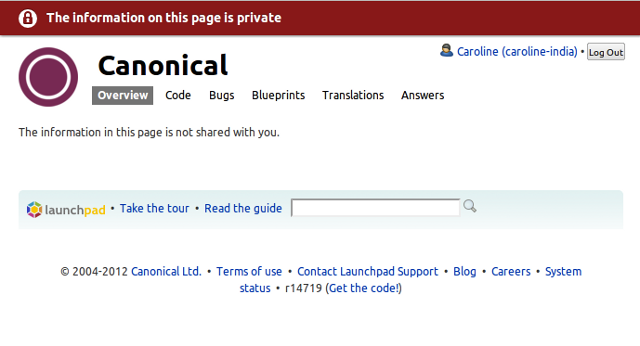Information sharing is now in beta for everyone
Tuesday, August 28th, 2012Launchpad’s bug and branch privacy features are being replaced by information sharing that permits project maintainers to share kinds of information with people at the project level. No one needs to manage bug and branch subscriptions to ensure trusted users have access to confidential information.
Maintainers can share and unshare their project with people
Project maintainers and drivers can see the “Sharing” link on their project’s front page. The page lists every user and team that the project shares with. During the transition period of the beta, you might see many users with “Some” access to “Private Security” or “Private” user information. They have this access because they are subscribed to bugs and branches. Maintainers can unshare with users who do not need access to any confidential information, or just unshare a bug or branch with a user. Maintainers can share share with a team to give them full access to one or more kinds of confidential information.
I have prepared a video that demonstrates the features (my apologies for the flickering)
Commercial projects can set bug and branch policies
Projects with commercial subscriptions can also change bug and branch sharing policies to set the default information type of a bug or branch, and control what types they may be changed to. Maintainers can set policies that ensure that bugs and branches are proprietary, and only proprietary, to ensure confidential information is never disclosed.
Sharing can be managed using API scripts
I maintain many project which have a lot of private bugs and branches. The sharing page lists a lot of people, too many to read quickly. I know most work for my organisation, but I don’t even know everyone in my organisation. So I wrote a Launchpad API script that can be run by any project maintainer to share the project with a team, then unshare with the team members. The members still have access to the bugs and branches and their subscriptions still work, but they will lose access to my project when they leave the team. This arrangement makes it very easy to manage who has access to my projects. share-projects-with-team.py is run with the name of the team and a list of projects to share with it.
./share-projects-with-team.py my-team project1 project2













